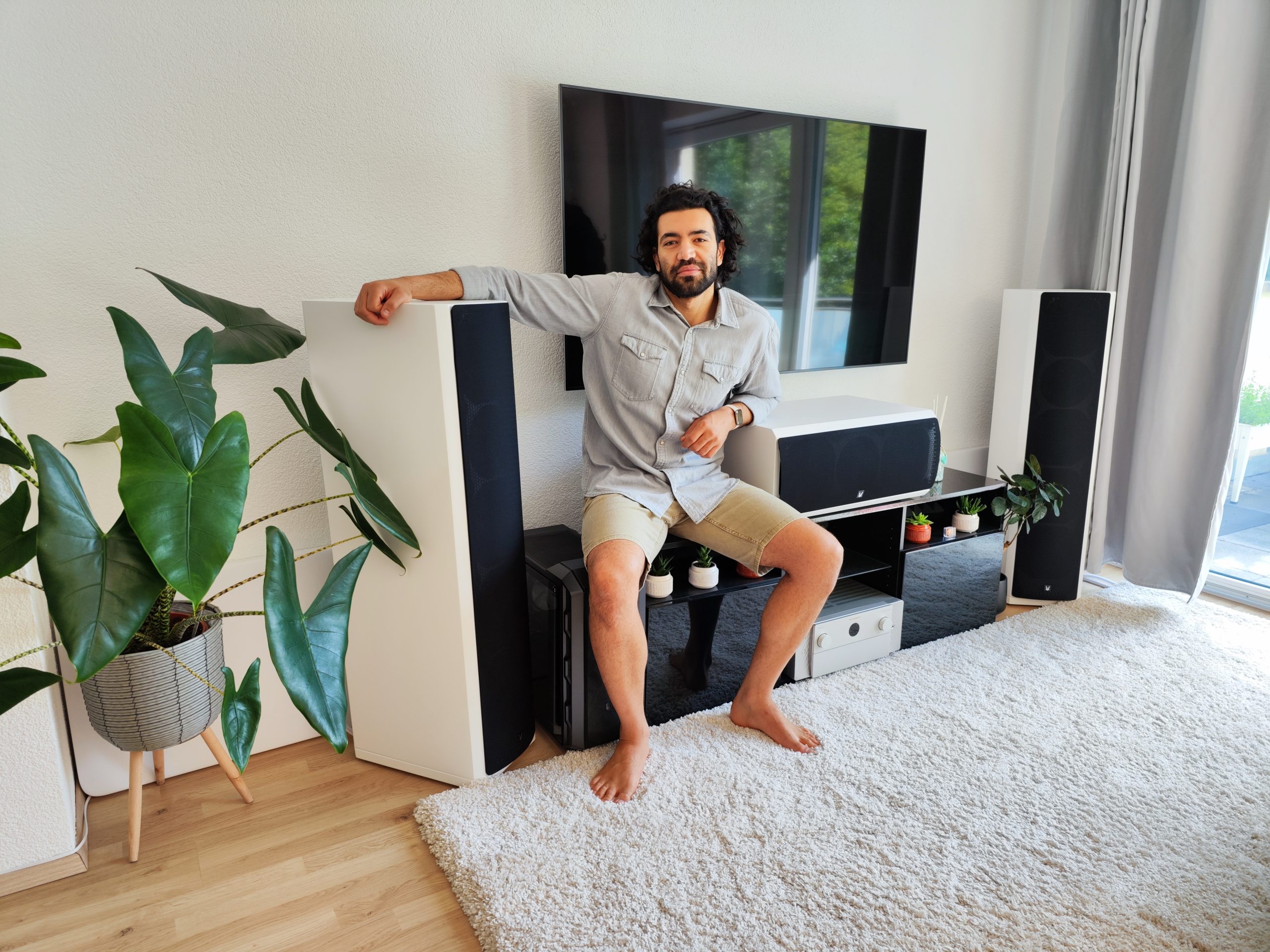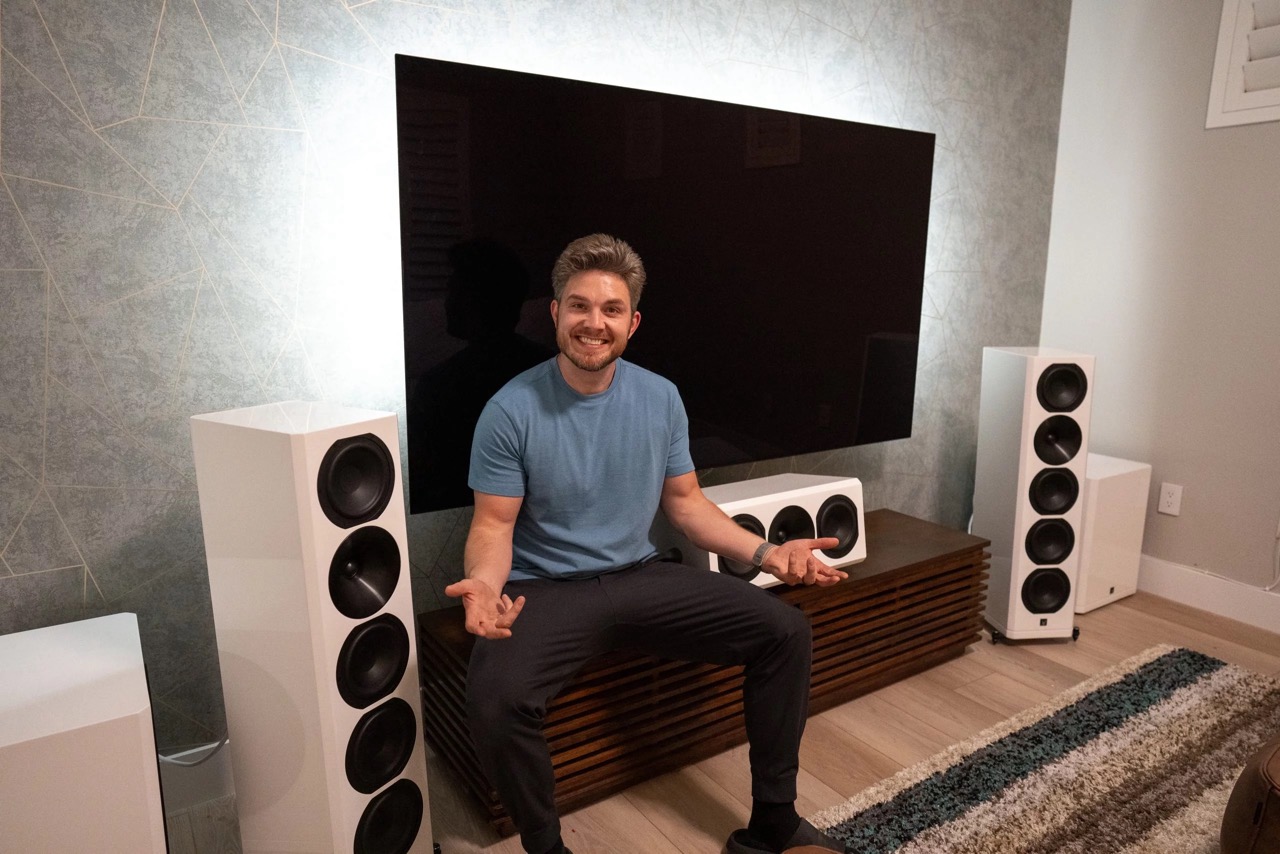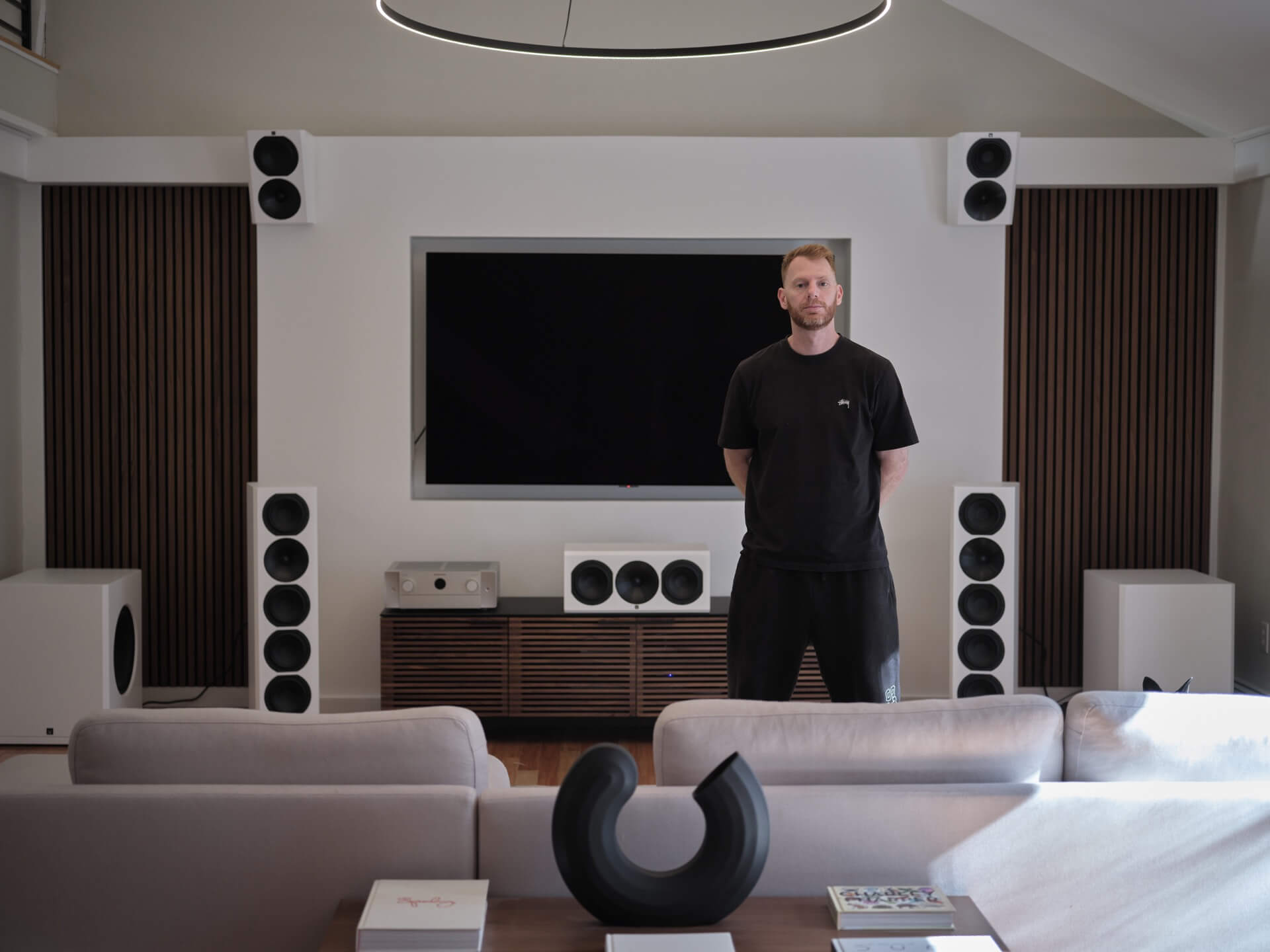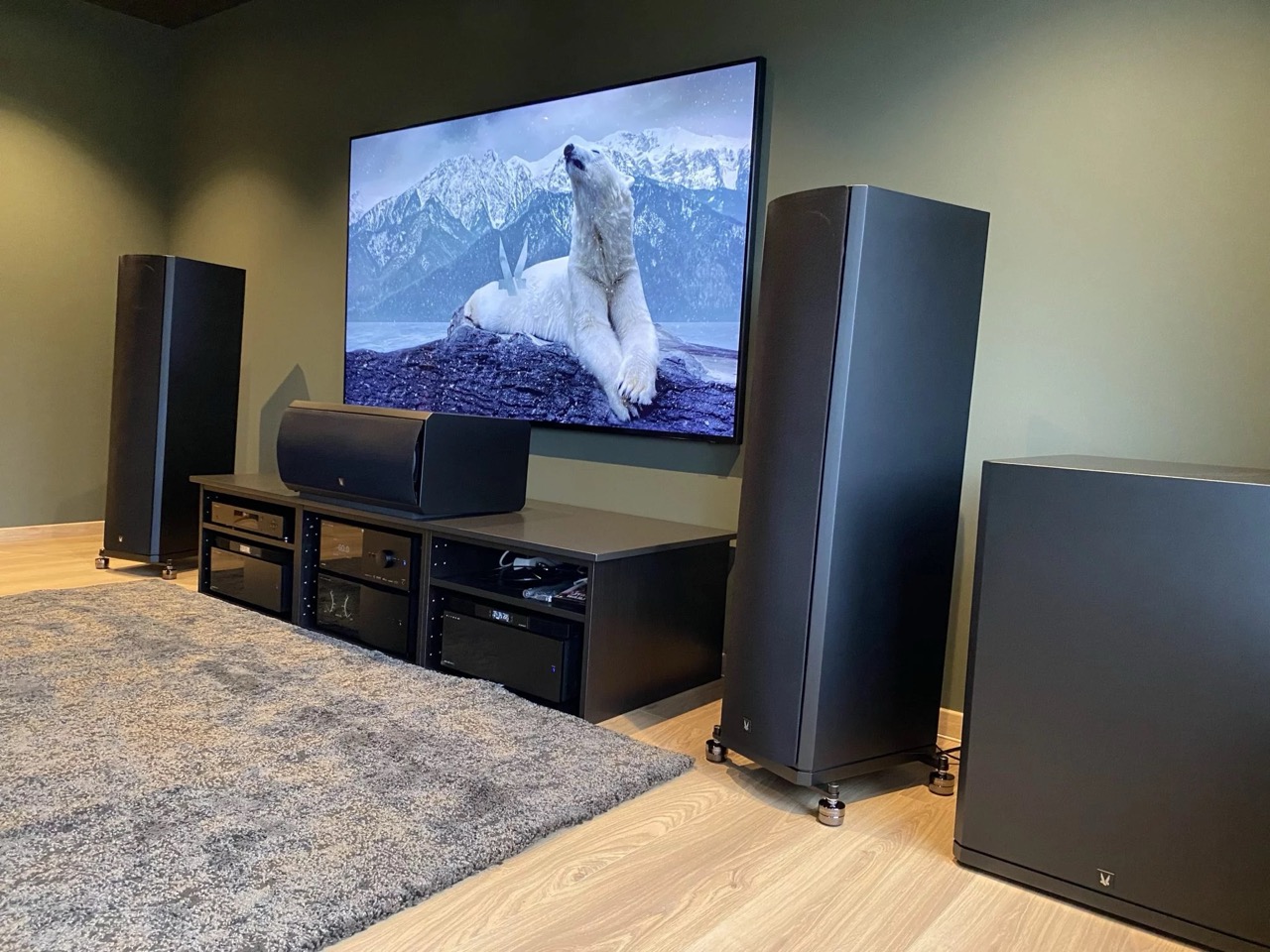HVAC Filters for Dust Control in Home Theaters
Article summary - TL;DR
- HVAC filters play a crucial role in maintaining air quality and protecting your home theater equipment from dust and allergens.
- Choosing the right filter based on MERV ratings ensures effective dust control without hampering airflow.
- Regular maintenance, such as changing filters every three months, is essential for system efficiency and air quality.
- A clean HVAC system can enhance home theater acoustics, minimizing background noise and distractions for an immersive experience.
- Invest in a high-quality filter like the 1723 Tower THX to elevate your home theater audio while ensuring optimal air quality.
Introduction to HVAC Filter Importance
Creating an immersive home theater experience involves much more than purchasing the latest high-definition projector or a state-of-the-art sound system. While these components are crucial, often overlooked is the significant role that HVAC filters play in maintaining optimal air quality and ensuring the longevity of your equipment. In any home theater setup, the control of dust and allergens is pivotal to protect sensitive electronics and provide a comfortable environment for viewers. Let’s dive into the essentials of HVAC filters for dust control in your home cinema.
Your home theater is a hub of electronic devices, from projectors and amplifiers to speakers and receivers. These devices are not only valuable but also vulnerable to damage from excessive dust accumulation. Without proper filtration, dust can clog vital components, leading to overheating, reduced performance, or even complete failure. A good HVAC filter helps to combat these issues, but the choice of filter, its maintenance, and its integration with the overall HVAC system are key factors for an effective dust control strategy.
While the potential damage to your electronics is a major concern, it’s important not to overlook the comfort and health of the viewers. Airborne particles, such as dust mites, pet dander, and pollen can trigger allergies and respiratory issues. High-quality HVAC filters can aid in removing these irritants from the air, ensuring that your home theater is not only a haven for movie enthusiasts but also a safe, clean space for all.
Understanding HVAC Filters and Their Ratings
To begin, it’s useful to understand what an HVAC filter is and how it is rated. HVAC filters are designed to trap and remove particles from your indoor air as it circulates through the heating, ventilation, and air conditioning system. They are typically made from a fibrous material which traps particles such as dust, dirt, and biological contaminants.
These filters come with ratings such as the MERV (Minimum Efficiency Reporting Value), which indicates how effectively a filter can remove certain particles from the air. The higher the MERV rating, the finer the filtration, allowing more and smaller particles to be captured. Homeowners may also consider HEPA (High Efficiency Particulate Air) filters, which are among the most efficient filters available, capable of removing at least 99.97% of dust, pollen, mold, bacteria, and other airborne particles with a size of 0.3 microns.
When selecting a filter for your home theater’s HVAC system, it’s essential to balance filtration efficiency with airflow. A filter with a very high MERV rating may indeed capture more particles, but it can also reduce airflow through the system. Reduced airflow can lead to increased energy usage and strain on your HVAC system. Therefore, it’s important to choose a filter that offers both high-quality air filtration and appropriate airflow for your system.
Choosing the Right HVAC Filter for Your Home Theater
The selection of the right HVAC filter for your home cinema comes down to several factors. First, consider the nature of your HVAC system and the recommendations provided by the manufacturer. Using a filter that is too restrictive for your system can lead to increased energy consumption and potentially damage your HVAC equipment.
Secondly, evaluate the specific needs of your home theater. If the room is prone to collecting dust or if you’re located in an area with high outdoor allergies, you might benefit from a higher-rated MERV filter. People with respiratory conditions or those simply wishing for the highest air quality might opt for a HEPA filter, bearing in mind that special accommodations may be needed to ensure such filters are compatible with their current HVAC system.
Lastly, take into account the maintenance and replacement schedule. Higher efficiency filters may need to be changed more regularly than lower-rated ones. It’s recommended to change your HVAC filter every 3 months under normal conditions, but in a home theater setting, where the stakes are higher for both performance and air quality, it might be wise to check and replace filters more frequently.
Installation and Maintenance of HVAC Filters
Proper installation and regular maintenance of your HVAC filters are key to maximizing their effectiveness. When installing a new filter, ensure it is the correct size and is seated properly to prevent air from bypassing it. Always follow the arrow on the filter which indicates the direction of air flow.
Regular checks and replacements are necessary to maintain the level of air quality and equipment protection you desire. Visual inspections can often reveal if a filter is heavily laden with dust and requires a change. When changing your filter, it’s also a good time to vacuum the air vents and duct openings to get rid of accumulated dust.
It’s also prudent to have your entire HVAC system inspected by a professional periodically. A qualified technician can clean components like coils and fans that you may not be able to easily access, ensuring that the system runs efficiently and prolonging the life of your home theater equipment.
Impact of HVAC Filters on Home Theater Acoustics
While HVAC filters primarily influence air quality, it’s also worth considering their potential impact on home theater acoustics. A well-maintained HVAC system with the right filters will run more quietly, reducing background noise and ensuring that it doesn’t interfere with your cinematic experience.
An HVAC system with clogged or poor-quality filters may require the fan to work harder, which could increase noise levels. This noise can be distracting and diminish the audio clarity in your home theater. By keeping your HVAC filters clean, you allow your system to operate quietly and efficiently.
It’s worth noting that some higher-rated filters, due to their denser materials, may slightly increase the sound of airflow. However, these sounds are typically much quieter than the sound from the speakers, and maintaining a clean filter will keep this noise to a minimum.
Cost Considerations and Energy Efficiency
Budgeting for high-quality HVAC filters is an investment in both your home theater and your home’s overall health. While higher-rated filters like HEPA may come with a higher upfront cost, they can provide increased protection for your valuable electronics by reducing dust-related damage.
Higher efficiency filters can also contribute to energy savings over time. A clean and properly fitted filter allows your HVAC system to operate more efficiently, which can lower your energy bills. Additionally, by maintaining a contaminant-free environment, your HVAC system is less likely to require repairs or early replacement.
When considering costs, it’s important to also think about the long-term savings associated with improved air quality, such as fewer allergies and respiratory issues, which can result in reduced medical expenses and improved overall well-being for you and your family.
Conclusion: Integrating HVAC Filters into Your Home Theater Design
HVAC filters are an essential component of any home theater system. They not only protect your investment by keeping electronic components clean and functional but also ensure that your viewing experience is comfortable and healthy.
By understanding the different types of filters, their ratings, and the necessary balance between filtration and airflow, you can make an informed decision that will yield the best results for your home entertainment space. With proper installation and maintenance, these filters will contribute to the longevity of your system and enhance your enjoyment of countless movies and shows to come.
Remember that air quality is a critical aspect of your home theater that should not be overlooked. Invest in the right HVAC filters and stay on top of their maintenance to guarantee a premium viewing experience every time the lights dim and the show begins.
Frequently asked questions
What are HVAC filters and why are they important for a home theater?
HVAC filters trap particles like dust and allergens from circulating air, preserving air quality and protecting electronic devices from dust accumulation, helping maintain optimal performance and longevity.
How do I choose the right HVAC filter for my home theater?
Consider your HVAC system's specifications, the specific dust and allergy needs in your area, and choose a filter with an appropriate MERV rating that balances filtration efficiency and airflow.
What does MERV mean in HVAC filters?
MERV stands for Minimum Efficiency Reporting Value; it rates how effectively a filter removes particles from the air. Higher MERV ratings mean better filtration, capturing smaller particles.
How often should I change my HVAC filter in a home theater?
It's recommended to change your HVAC filter every three months, but for home theaters, consider checking and replacing filters more frequently due to higher performance and air quality demands.
Can HVAC filters impact audio quality in my home theater?
Yes, clean and appropriate HVAC filters help the system run quietly, reducing background noise that could interfere with audio clarity during your cinematic experience.
Are HEPA filters better for home theaters?
HEPA filters are highly efficient and can capture 99.97% of airborne particles, making them ideal for high air quality, but ensure they are compatible with your HVAC system and do not restrict airflow.
What are the cost considerations for HVAC filters?
While higher-rated filters may have a higher upfront cost, they can lead to energy savings, fewer repairs, and improved air quality, translating to long-term health and financial benefits.
How can I maintain my HVAC filters effectively?
Regularly check and replace filters, ensure proper installation, and schedule professional inspections for your HVAC system to clean components that may be harder to access.
Is dust control in a home theater necessary?
Absolutely! Controlling dust protects sensitive electronics and improves the comfort and health of viewers by reducing allergens and creating a cleaner environment.








